Ito ang dahilan kung bakit ka pagod sa hapon - at hindi makatulog sa gabi
Kung hindi mo mapigilan ang iyong mga mata sa 3 p.m. Ngunit malawak na gising sa oras ng pagtulog, basahin ito.
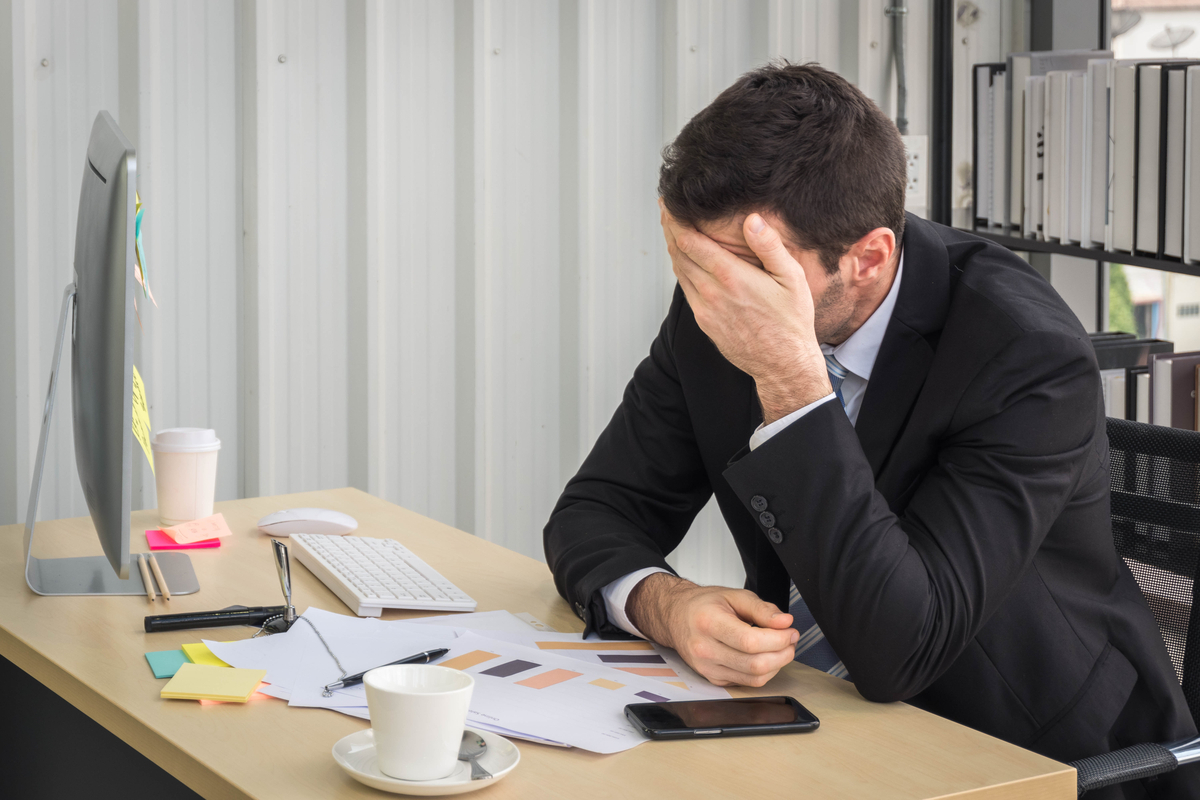
For many of us, it happens like clockwork: After lunch, maybe sometime around 3 p.m., our eyelids get heavy and we find ourselves stifling yawns as we struggle to stay alert. But when bedtime finally rolls around, sleep seems impossible. Our minds race with worry about all the things we didn't get done today, or what may happen tomorrow, and the shut-eye we so desperately wished for a few hours earlier becomes elusive.
Why is it that the afternoon slump hits some of us so hard—and then we can't fall asleep later on? If you can identify with this dilemma, read on to find out what the culprit could be, and how revamping your morning routine could make a huge difference in your energy level all day (and night) long.
READ THIS NEXT: If You Do This When You Sleep, Talk to Your Doctor, Study Says.
Many people rely on a cup of coffee to start the day.
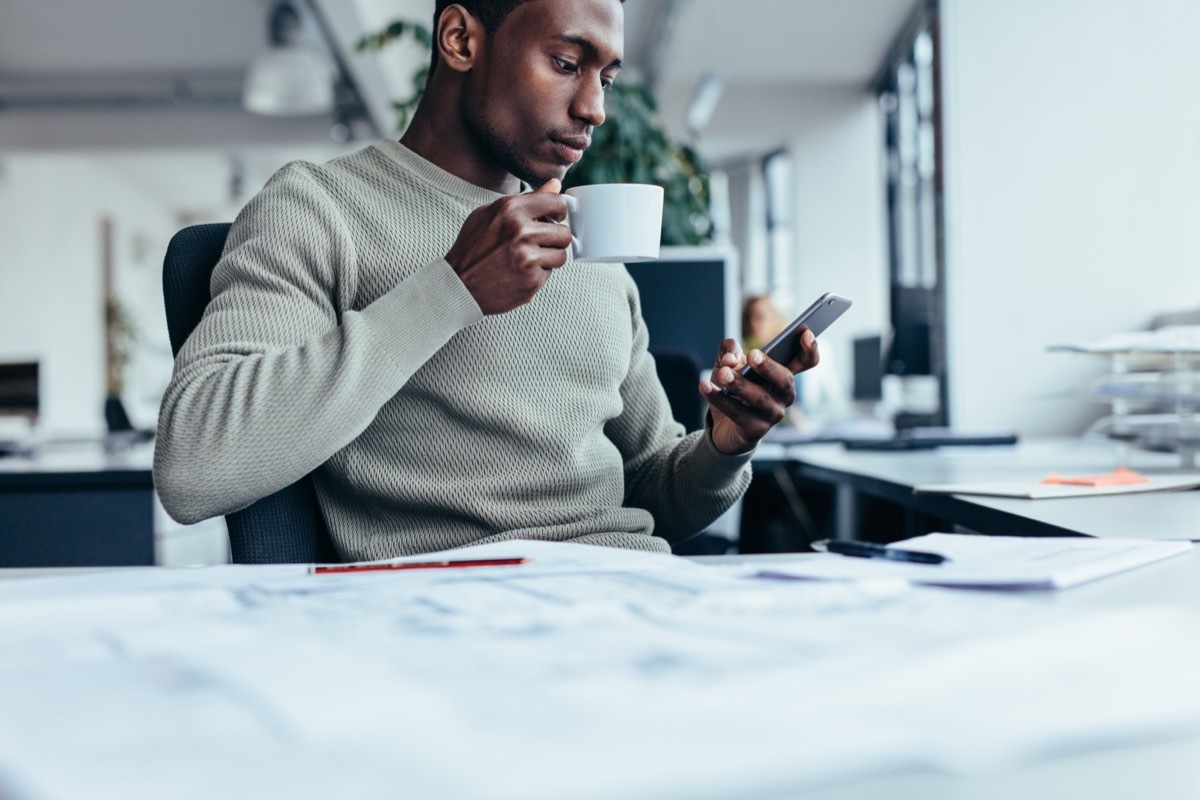
If you, as Dolly Parton once sang, stumble to the kitchen and pour yourself a cup of ambition as soon as you wake up in the morning, you're in good company.
The National Coffee Association (NCA) recently released a report showing that coffee consumption is the highest it's been in two decades, with 66 percent of Americans saying they enjoy the brewed beverage every day. That makes coffee more popular than water, Diet soda, or any other drink—not surprising, considering the number of coffee shops you'll find in any major city, and the ubiquity of countertop coffee makers in American kitchens.
The boost we get from coffee's caffeine content—a typical mug contains about 96 milligrams of the drug (and yes, it is a drug)—is only part of its appeal. The ritual of making (or ordering) it, the rich aroma, and the soothing feeling of sipping something warm on a cold day (or cold on a hot day, if you're an iced coffee devotee) are all part of what makes coffee a beloved part of the morning routine. But if you find your energy flagging in the afternoon, and you struggle to sleep at night, you might want to rethink your relationship with coffee.
When the caffeine buzz wears off, your energy level crashes.
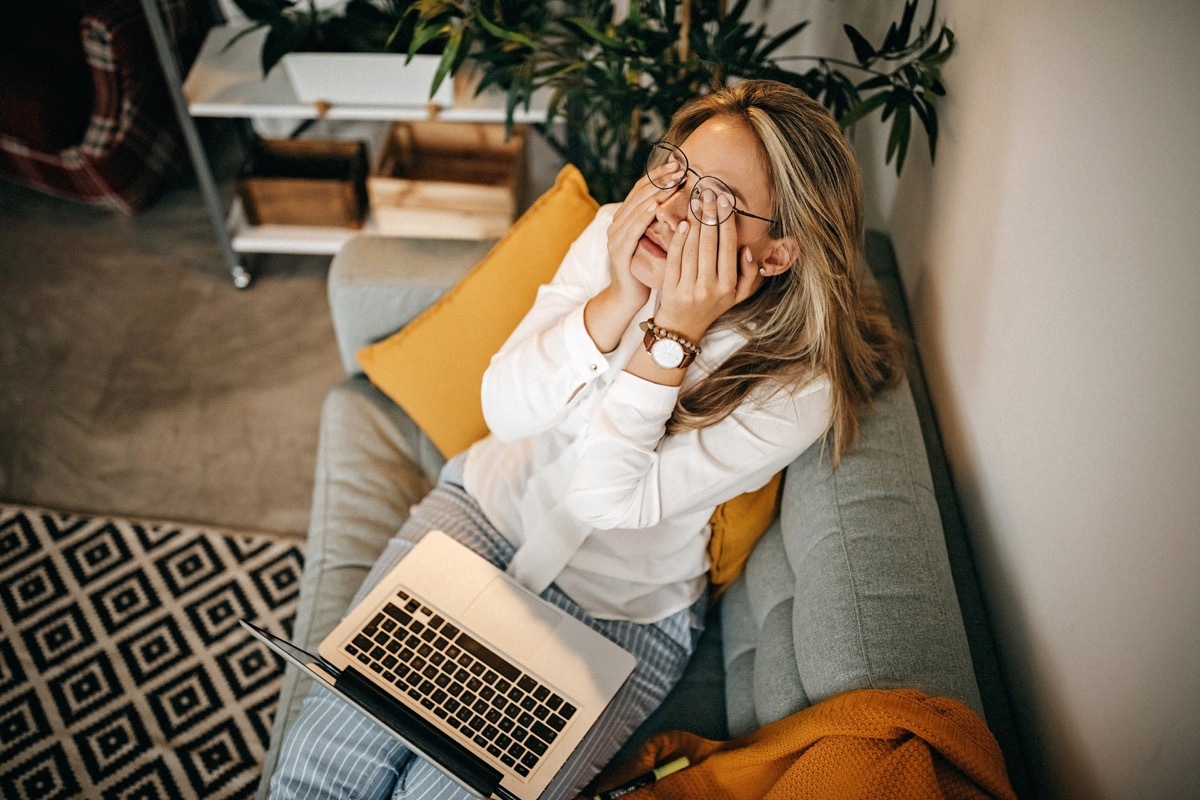
"Many people turn to caffeine to increase energy or alertness during the day, especially if they feel tired," says Stephanie Middleberg, RD, MS, CDN, food expert forCalibrate Health. "The problem here is that if you are relying on it as an upper or energy source when tired, it will only temporarily help. Once the caffeine wears off, you'll most likely feel more tired than you originally did, which can start a cycle of caffeine dependence."
Of course, not everyone responds to caffeine in the same way, Middleberg points out. "Caffeine is metabolized by an enzyme in the liver," she says. "Fifty percent of people have a variant in a particular gene that leads to slow processing of caffeine, and these people are considered 'slow metabolizers.'" These people may feel the effects of caffeine much longer than people whose systems clear the drug more quickly, making them feel jittery and keyed up for hours after draining their daily cup of joe.
For these slow metabolizers, there are other health risks, says Middleberg: "[They] are at increased risk of sakit sa puso, hypertension, mood disorders, and impaired fasting glucose when they consume caffeine or a certain amount of caffeine."
For more health advice delivered straight to your inbox, sign up for our daily newsletter.
Caffeine can disrupt your sleep cycle—and cause anxiety.
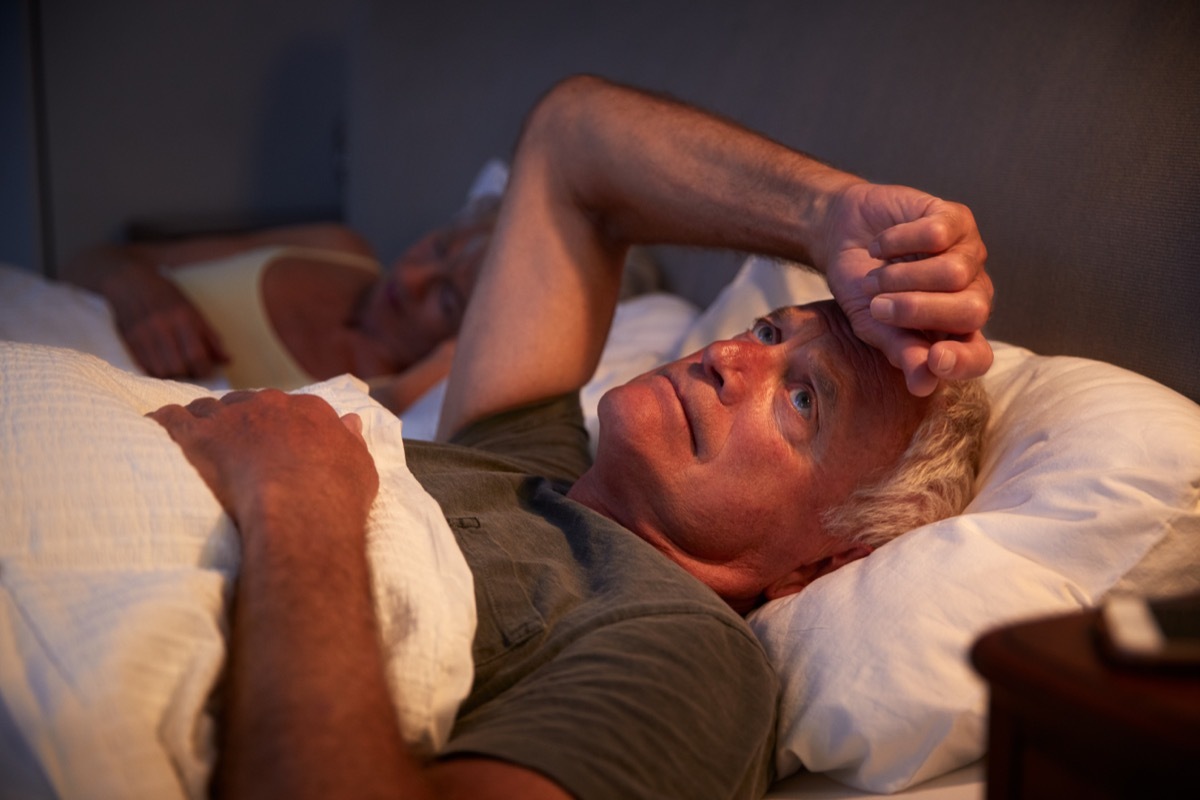
If anxiety keeps you up at night, even after you spent the afternoon battling fatigue, coffee could be to blame for that, too. Middleberg routinely recommends that people trying to manage stress begin by reducing their caffeine intake, "as it can disrupt sleep, raise your cortisol levels, and increase your risk of mood disorders." Cortisol is the hormone your body releases in response to stress, and overexposure to it can lead to an array of health problems, says the Mayo Clinic, including digestive trouble, headaches, weight gain, and memory problems.ae0fcc31ae342fd3a1346ebb1f342fcb
"Caffeine can trigger the release of the 'fight-or-flight' hormone, adrenaline, which in some people is good because it makes them feel more alert and wakeful," explains Middleberg. "But in others, especially those slow metabolizers, [caffeine] can lead to anxiety and nervousness." She further notes that, "Caffeine-induced anxiety disorder is now one of four caffeine-related syndromes that appears in the Diagnostic and Statistical Manual of Mental Disorders (DSM) published by the American Psychiatric Association."
Ang paglipat ng iyong gawain sa umaga ay makakatulong sa iyong pakiramdam na mas alerto sa buong araw.
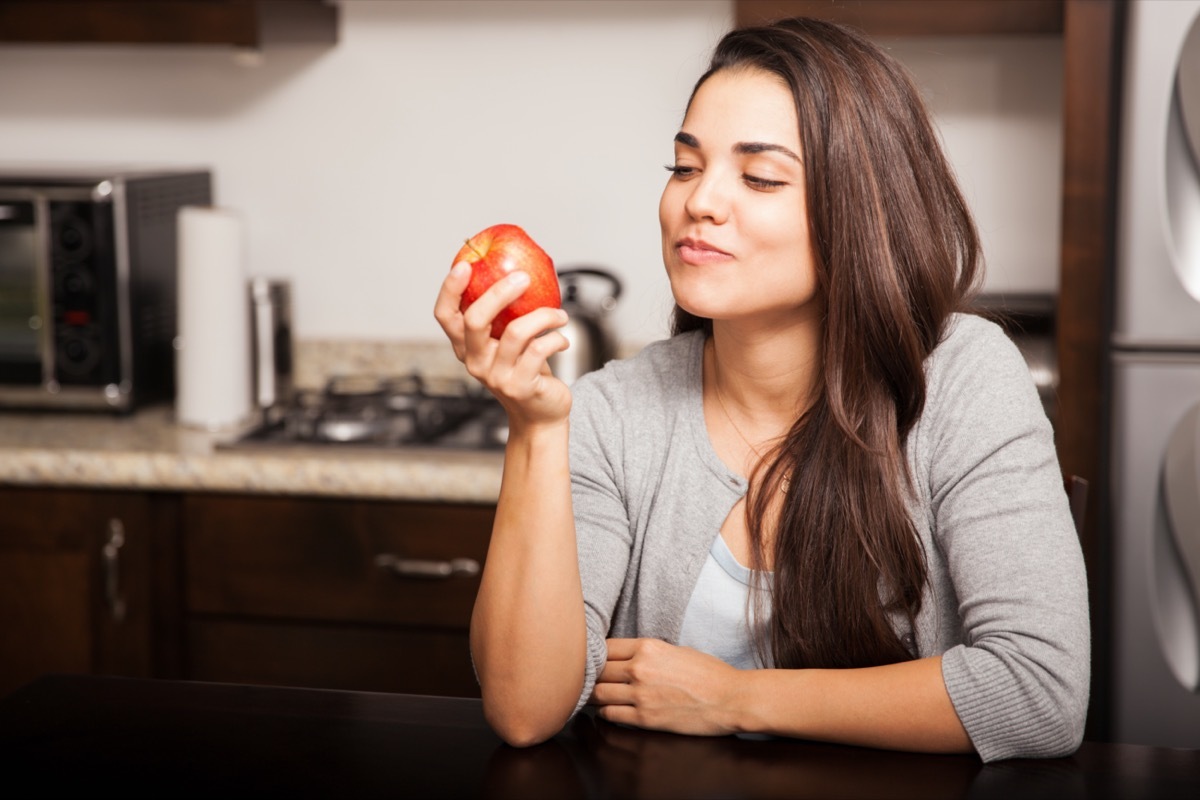
Kung ikaw ay isang mahilig sa kape, ang pag-iisip na makarating sa isang umaga nang wala ito ay maaaring nakababahala, upang sabihin ang hindi bababa sa. Ngunit maniwala ka o hindi, may mga kahalili sa mausok, inuming caffeine na maaaring maging mas epektibo sa pagkakahawak sa iyo. Isa sa mga pinaka nakakagulat na kapalit para sa isang tasa ng kape? Isang mansanas!
Oo, tama iyon - ang mabuting matandang "mansanas sa isang araw" na sinabi na iwasan ang doktor ay maaari ring makatulong na gisingin ka sa umaga, nang hindi ka pinapanatili sa gabi. Ayon sa blog ng Cornell University, salamat sa kanilang likas na nilalaman ng asukal, mansanas "provoke isang katulad na tugon sa caffeine Sapagkat ang mga bitamina mula sa mansanas ay pinalaya nang dahan -dahan sa buong katawan, na ginagawang mas gising ka. "Kahit na mas mahusay?" Hindi tulad ng caffeine, walang mga jolts, mood swings, pagkabalisa, jitters o ang dreaded crash, "ang kanilang mga eksperto ay sumulat.
Ang pagkuha ng natural na sikat ng araw sa umaga at pagpunta para sa isang matulin na lakad ay makakatulong na gisingin ka rin,natagpuan ang mga pag -aaral. At syempre, kung talagang hindi mo maibibigay ang iyong ugali ng kape, palaging may decaf.
Basahin ito sa susunod:Kung uminom ka ng iyong kape tulad nito, maaaring mag -skyrocket ang iyong panganib sa kanser, sabi ng pag -aaral.
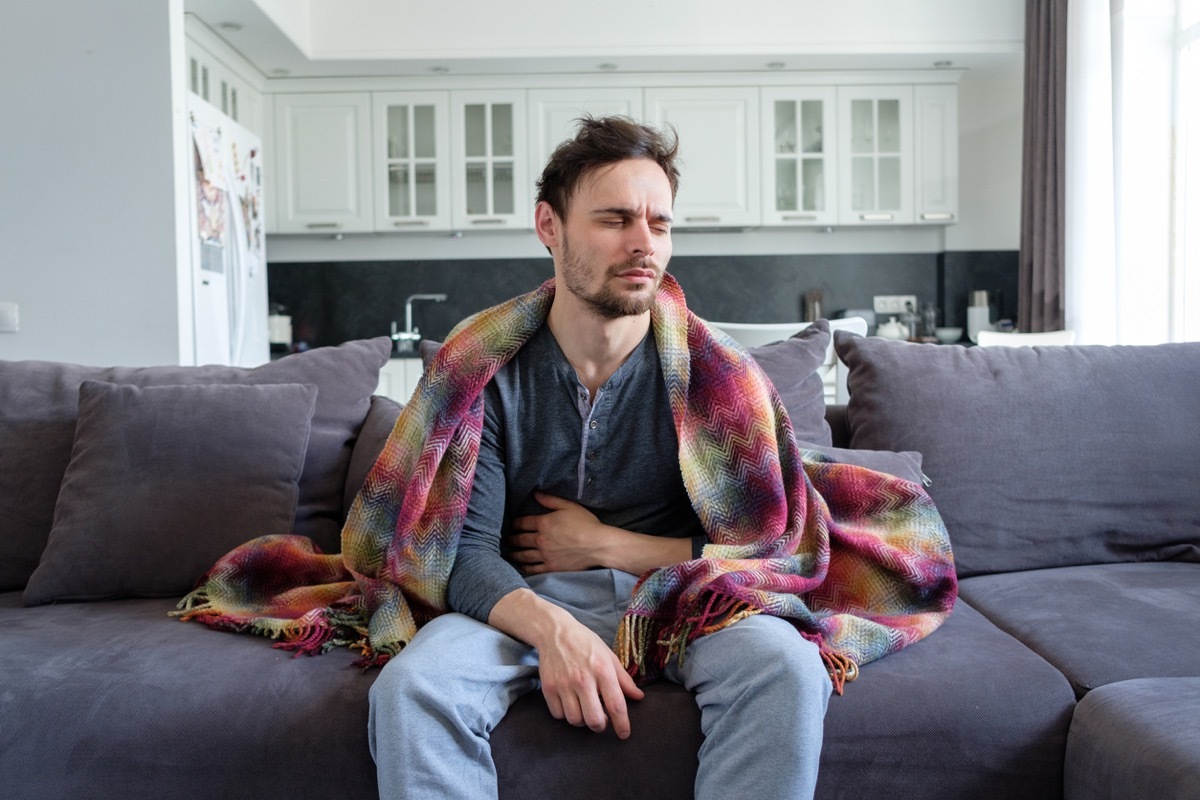
Ang kamangha-mangha coronavirus side effect Walang sinuman ang nagsabi sa iyo tungkol pa
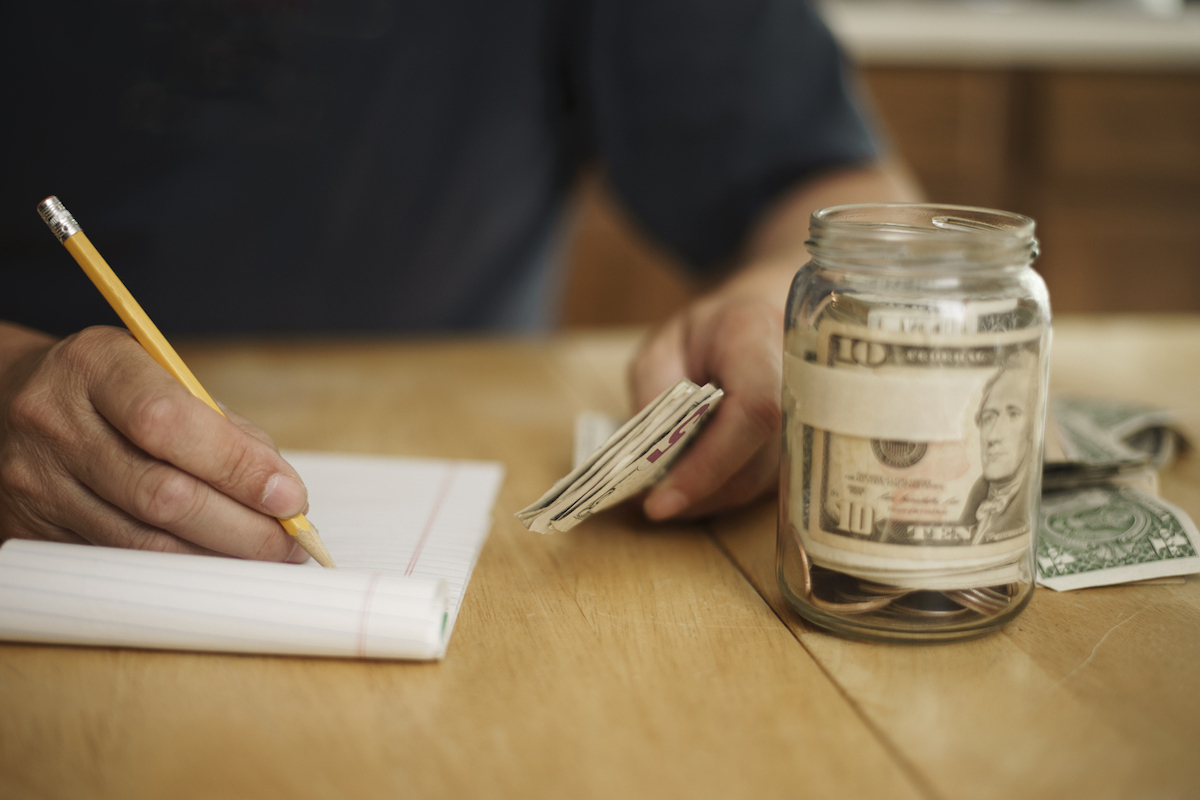
14 Matalino mga paraan upang kumita ng mas maraming pera ngayon
